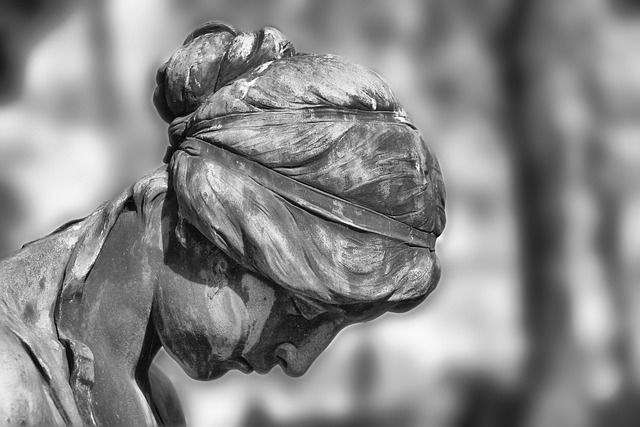Traditional Funerals in Albury Wodonga have a deep-rooted history that reflects a blend of indigenous and European funeral traditions. Over the years, these practices have evolved to incorporate diverse religious influences from communities such as Catholic, Anglican, and Presbyterian. Today, they remain a vital part of the region's cultural heritage, offering personalized and meaningful services that honor individual lives and provide comfort to families during their time of loss. Funeral homes in Albury Wodonga cater to this tradition, ensuring that the ceremonies reflect the community's values of respect, remembrance, and dignity for the deceased. Despite broader societal changes, the core elements of these traditional funerals—ceremony, community support, and commemoration—remain a constant, highlighting the area's commitment to maintaining its unique funeral traditions.
explore the rich tapestry of funeral traditions in Albury Wodonga, a region where heritage and respect for the departed are woven into the fabric of each ceremony. This comprehensive guide delves into the historical evolution of funerals, offering insights into how immigration and cultural exchange have shaped local practices. We will navigate the steps to plan a traditional funeral, highlighting the key elements that form the backbone of these services and exploring how they reflect the deep-rooted cultural values and religious beliefs within the community. With a focus on preserving family heritage, this article also addresses the significance of traditional funerals in Albury Wodonga, examining their role in celebrating life and honoring the deceased in a manner that is both meaningful and enduring. We will discuss the importance of understanding costs, personalizing ceremonies to reflect the unique life lived, and considering the evolving landscape of funeral services. Join us as we honor the past while acknowledging the future of traditional funerals in this region, ensuring these cherished customs continue to hold significance for generations to come.
- Historical Overview of Funerals in Albury Wodonga
- – The Evolution of Funeral Practices in Albury Wodonga
Historical Overview of Funerals in Albury Wodonga

The historical overview of funerals in Albury Wodonga reveals a tapestry of traditions that have evolved over time, reflecting the diverse cultural and religious influences within the region. From the earliest days when European settlers established the town in the mid-1800s, funeral practices have been an integral part of the community’s rites of passage. The arrival of different faith communities, including Catholic, Anglican, and Presbyterian, brought with them their respective funeral customs, which contributed to a rich and varied funerary landscape. Over the years, these practices have been adapted and blended to create a unique local tradition of funerals in Albury Wodonga, one that honors the deceased while comforting the living.
Today, traditional funerals in Albury Wodonga remain steeped in these historical traditions, with ceremonies often featuring hymns, readings, and eulogies that reflect the faith and life of the individual who has passed. The region’s funeral homes offer a range of services to accommodate these practices, ensuring that each funeral is both meaningful and respectful. These establishments not only provide the necessary logistical support but also guidance on how to incorporate personal touches that make each service unique. The enduring popularity of traditional funerals in Albury Wodonga underscores their importance as a means of providing closure, allowing families and friends to come together in remembrance, and celebrating the life of a loved one with dignity and respect.
– The Evolution of Funeral Practices in Albury Wodonga

The practices surrounding the end of life have always been a reflection of cultural, religious, and personal values, and Albury Wodonga is no exception. Historically, funeral services in this region have evolved significantly from the early days when burials were simpler and more immediate. The European settlers brought their own traditions, which intertwined with the indigenous practices to form a unique tapestry of mourning rituals. Over time, these combined customs evolved into what we now recognize as traditional funerals in Albury Wodonga.
Today, traditional funerals in Albury Wodonga remain an integral part of the community’s heritage. They offer a structured and meaningful way to say goodbye, allowing families to honor their loved ones with ceremonies steeped in tradition and significance. These services often include religious elements, reflecting the area’s diverse faith communities, as well as secular aspects that emphasize remembrance and reflection. The evolution of funeral practices in Albury Wodonga has been influenced by social changes, advances in technology, and shifts in cultural attitudes, yet the core principles of a traditional funeral—ceremony, community support, and commemoration—remain steadfast. Funeral homes in Albury Wodonga continue to adapt their services to meet the needs of diverse populations while maintaining the dignity and honor that characterize traditional funerals.
In concluding our exploration of the tradition of funerals in Albury Wodonga, it is evident that the region’s funeral practices are deeply rooted in history and culture. The evolution from past customs to modern services in Albury Wodonga reflects a respectful blend of heritage and contemporary needs. Traditional funerals here continue to hold significant importance for many families, serving as a poignant farewell that honors the deceased and supports the living through shared rituals and community solace.
When planning a traditional funeral in either Albury or Wodonga, one can expect a solemn and meaningful service that often incorporates religious elements and family traditions. These funerals are not only a testament to the life lived but also an expression of the shared values within the community. They remain popular due to their ability to provide comfort, closure, and a sense of belonging during times of grief.
For those considering a traditional funeral for themselves or a loved one, it is advisable to understand the various options available, including the costs involved, to ensure that the service aligns with individual preferences and financial considerations. The guide provided offers valuable insights into personalizing and planning such services, ensuring that the funeral not only respects the deceased’s life but also embraces the cultural norms of Albury Wodonga.
Ultimately, whether opting for a traditional or modern service, the key is to select a funeral that resonates with the family and the individual, one that reflects their legacy and values. In Albury Wodonga, this option remains as relevant today as it has been historically, offering a sense of continuity and tradition that many continue to cherish.
